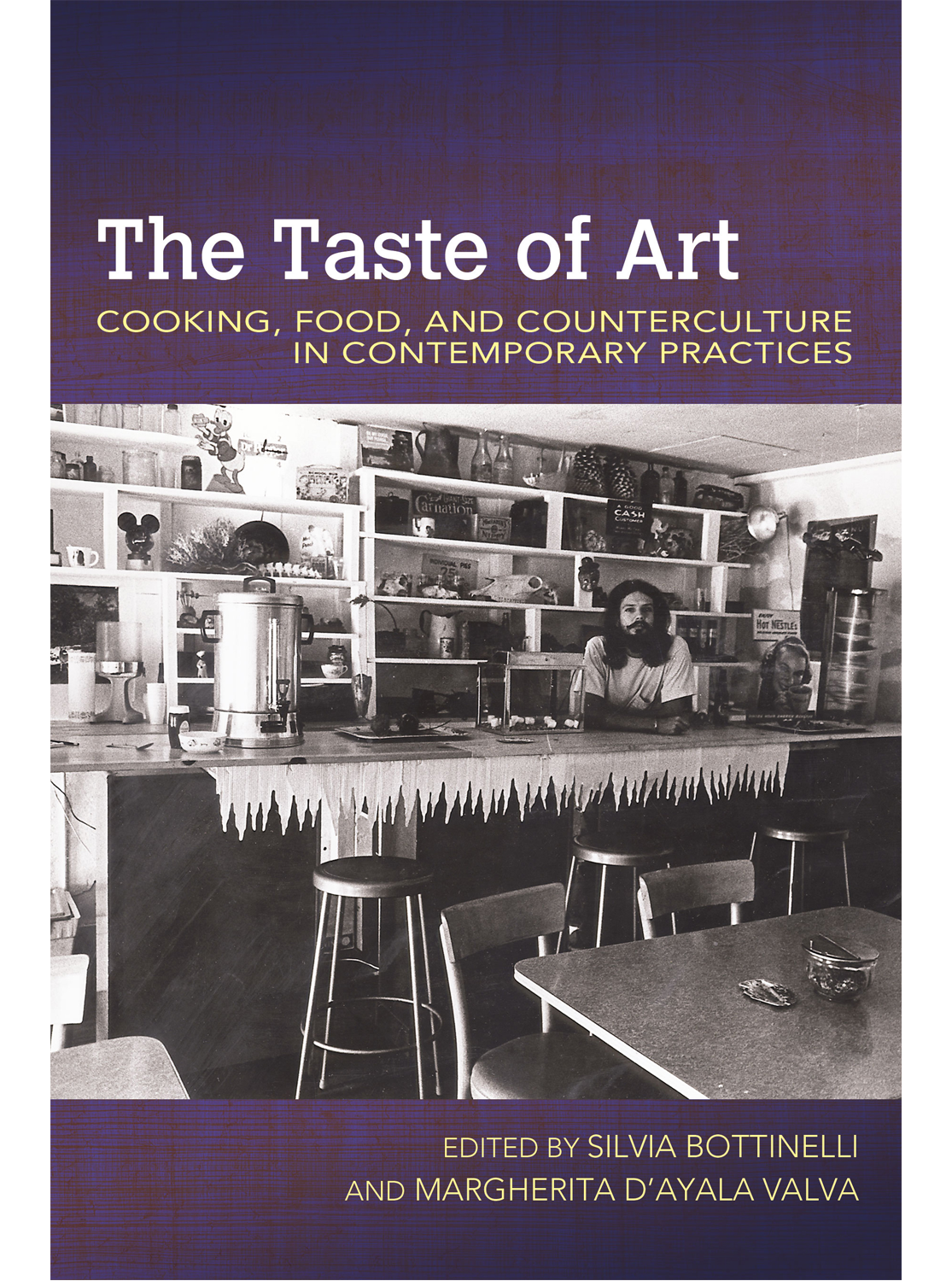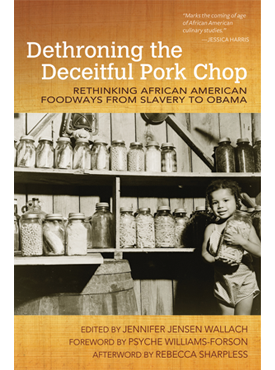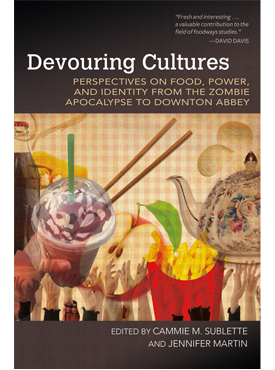The Taste of Art offers a sample of scholarly essays that examine the role of food in Western contemporary art practices. The contributors are scholars from a range of disciplines, including art history, philosophy, film studies, and history. As a whole, the volume illustrates how artists engage with food as matter and process in order to explore alternative aesthetic strategies and indicate countercultural shifts in society.
The collection opens by exploring the theoretical intersections of art and food, food art’s historical root in Futurism, and the ways in which food carries gendered meaning in popular film. Subsequent sections analyze the ways in which artists challenge mainstream ideas through food in a variety of scenarios. Beginning from a focus on the body and subjectivity, the authors zoom out to look at the domestic sphere, and finally the public sphere.
Here are essays that study a range of artists including, among others, Filippo Tommaso Marinetti, Daniel Spoerri, Dieter Roth, Joseph Beuys, Al Ruppersberg, Alison Knowles, Martha Rosler, Robin Weltsch, Vicki Hodgetts, Paul McCarthy, Luciano Fabro, Carries Mae Weems, Peter Fischli and David Weiss, Janine Antoni, Elżbieta Jabłońska, Liza Lou, Tom Marioni, Rirkrit Tiravanija, Michael Rakowitz, and Natalie Jeremijenko.
Silvia Bottinelli received her doctoral degree from the University of Pisa, and she teaches in the Visual and Critical Studies Department of the School of the Museum of Fine Arts at Tufts University, Boston. She has published extensively in the fields of modern and contemporary art.
Margherita d’Ayala Valva received her PhD from the Scuola Normale Superiore in Pisa, where she also teaches. She has published on the history of collecting in early twentieth-century Italy, art history sources, and artists’ writing.
“The Taste of Art offers a compelling and persuasive discussion of the growing importance of the role of food art in contemporary countercultural discourses. … The chapters featured in The Taste of Art … reflect the potential for food to serve as a protagonist in conveying revolutionary and countercultural narratives outside the world of art, especially in relation to further magnifying the voices of those who have often been muted by oppressive institutions and regimes.”
—Natalie Jovanovski, Food and Foodways, January 2020
“The house of food studies has many rooms, and this book adds yet another bright and splendid room, filled with art. Don’t only think about still-life painting representing red salmon, but envisage the use of foodstuffs in artistic performances or cooking and eating as fine art actions, and you get an impression of the content of this marvelous, rich, daring, multidisciplinary, and pioneering book.”
—Peter Scholliers, Vrije Universiteit Brussel
Part I: Taste of Art: Methodologies and Critical Approaches
Chapter 1
Can Cuisine Be Art?: A Philosophical (and Heterodox) Proposal
Nicola Perullo
Chapter 2
Time Changes Everything: Futurist/Modernist Cooking
Carol Helstosky
Chapter 3
From Stove to Screen: Food Porn, Professional Chefs, and the Construction of Masculinity
in Films
Fabio Parasecoli
Chapter 4
Spoerri Reads Rumohr: The Spirit of Culinary Art Revisited
Margherita d’Ayala Valva
part II: Food Art: Multisensoriality and Experience
Chapter 5
Food, Decay, and Disgust: Paul McCarthy’s Bossy Burger as Contemporary Still Life
Anja Foerschner
Chapter 6
In & On: Herbs, Fish, and Janine Antoni’s Touch
Silvia Bottinelli
Chapter 7
Luciano Fabro: Bitter Sweets for Nadezhda Mandelstam
Sharon Hecker
part III: The Kitchen: Intersections between the Private and Public Spheres
Chapter 8
Feminist Art: Kitchen Testimony
Jody B. Cutler
Chapter 9 E s Geht Um Die Wurst: On Peter Fischli and David Weiss’s Sausage Photographs
Edward A. Vazquez
Chapter 10
Elżbieta Jabłońska’s Kitchen Interventions: Food, Art, and the Maternal Identity
Barbara Kutis
part IV: Eating Out: Food Art in the Public Sphere
Chapter 11
Artists and Friends: Daniel Spoerri’s Eat Art Gallery
Cecilia Novero
Chapter 12
Express Yourself: Al’s Café in Context
Rachel Federman
Chapter 13
Ways of Eating: Tradition, Innovation, and the Production of Community in Food-Based Art
Laurie Beth Clark and Michael Peterson
part V: Not for Art’s Sake: Ethics, Ecology, and Sustainability
Chapter 14
Joseph Beuys: Gastrosophical Aesthetics
Harald Lemke
Chapter 15
Provisional Objects: Alison Knowles’s Bean Rolls
Nicole L. Woods
Chapter 16
Cooking and Eating across Species: Natalie Jeremijenko’s Cross(x)Species Adventure Club
Lindsay Kelley

Food and Foodways, a series from the University of Arkansas Press, explores historical and contemporary issues in global food studies. We are committed to telling lesser known food stories and to representing a diverse set of voices. Our strength is works in the humanities and social sciences that use food as a lens to examine broader, social, cultural, environmental, ethical, and economic issues. In addition to scholarly books, we publish creative nonfiction that explores the sensory dimensions of consumption and celebrates food as evidence of human creativity and innovation.





